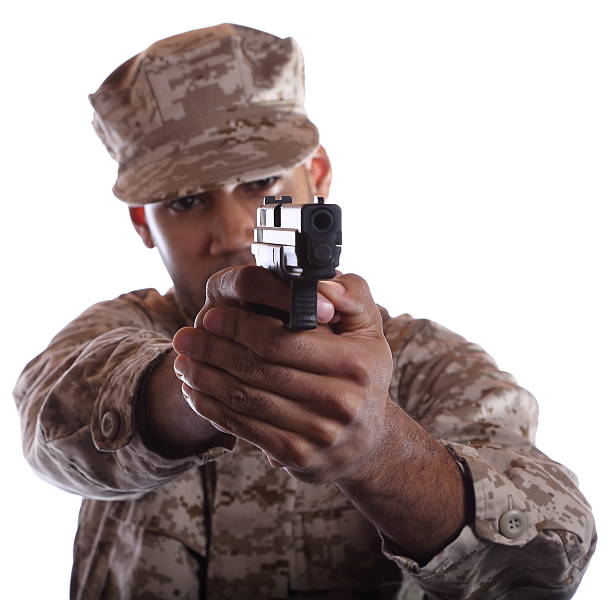Summary
Historical Context: The origin of ‘bite the bullet’ is deeply rooted in history. Before the advent of modern anesthesia in the 19th century, soldiers undergoing surgery on the battlefield had to endure excruciating pain. To prevent them from screaming or biting their tongues, they were often given a bullet to bite down on during the procedure.
Why a Bullet? Bullets were readily available to soldiers and were hard enough to withstand biting pressure without breaking easily.
First Recorded Use: The phrase appeared in Rudyard Kipling’s novel The Light That Failed (1891):
“Bite on the bullet, old man, and don’t let them think you’re afraid.”
The idiom ‘Bite the Bullet’ has evolved from a literal practice of enduring pain silently to a figurative expression for bravely accepting hardship. This evolution reflects the changing nature of language and society.
Here are some examples of how “bite the bullet” is used in sentences:
. Everyday Life
-
“I didn’t want to pay the extra fee, but I had to bite the bullet and do it.”
-
“She finally bit the bullet and told her boss she was quitting.”
2. Business Context
-
“The company had to bite the bullet and invest in new technology to stay competitive.”
-
“After months of delay, the board decided to bite the bullet and approve the restructuring plan.”
3. Personal Challenges
-
“He bit the bullet and went to the dentist after years of avoiding it.”
-
“I guess I’ll bite the bullet and start my diet tomorrow.”
4. Historical or Military-Themed Writing
-
“Soldiers often had to bite the bullet during field surgeries in the 19th century.”
Here’s a list of 15 idioms with military origins, along with their meanings and brief origin stories:
5 Bite the Bullet
- Meaning: Face a painful situation bravely.
- Example:
“I hate going to the dentist, but I’ll bite the bullet and make an appointment.”
Close Ranks
- Meaning: Unite and support each other.
- Example:
“When the company faced criticism, the employees closed ranks around the Manager.”
7. Flash in the Pan
- Meaning: A brief success that doesn’t last.
- Example:
“His first book was a bestseller, but it turned out to be just a flash in the pan.”
9 Lock, Stock, and Barrel
- Meaning: The whole thing, completely.
- Example:
“They sold the business lock, stock, and barrel.”
1 . On the Front Lines
- Meaning: In the most active or dangerous position.
-
Example:
-
“Healthcare workers were on the front lines during the pandemic.”
11. Call to Arms
- Meaning: A summons to take action.
- Example:
“The environmental crisis is a call to arms for all nations.”
12 Drop a Bombshell
- Meaning: Deliver shocking news.
- Example:
“She dropped a bombshell when she announced her resignation.”
1 Gung Ho
- Meaning: Extremely enthusiastic.
- Example:
“The recruits were gung-ho about starting their training.”
4. Loose Cannon
- Meaning: An unpredictable person who can cause damage.
- Example:
“He’s a loose cannon in meetings—always saying something controversial.”
15. Rally the Troops
- Meaning: Motivate people for a task.
- Example:
“Before the big presentation, the Manager rallied the troops with an inspiring speech.”
16. Take Flak
- Meaning: Receive criticism.
- Example:
“The politician took flak for his controversial comments.”
17 In the Trenches
- Meaning: Doing hard, detailed work.
- Example:
“She spent years in the trenches before becoming a senior executive.”
1 . Snafu
- Meaning: A chaotic situation.
- Example:
“The event was a snafu from start to finish due to poor planning.”
9. Shell Shocked
- Meaning: Stunned or traumatized.
-
Example: “He looked shell-shocked after hearing the bad news.”
20. Full Battle Rattle
- Meaning: Fully equipped and ready for action.
- Example:
“The soldiers went out in full battle rattle for the mission.”
